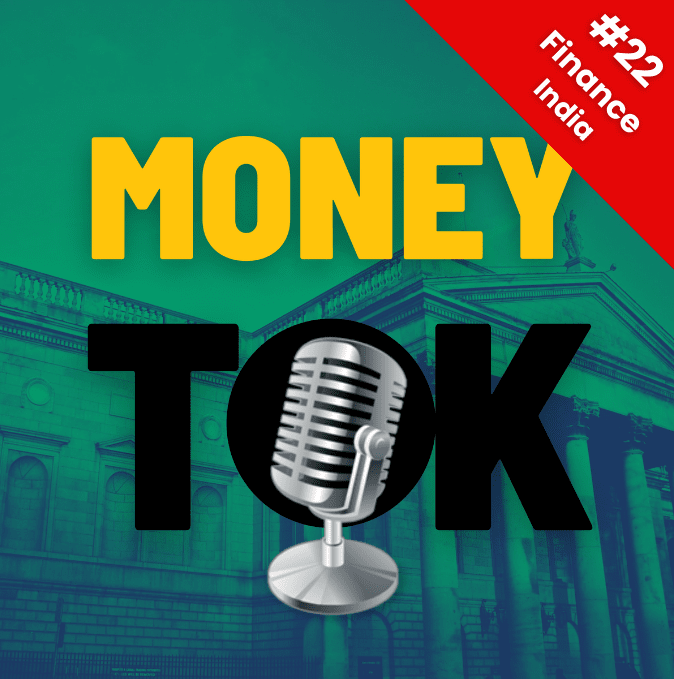MT17 | Make Money Saving The World (ESG Investing)
The IPCC report on climate change came out recently and it was a really gloomy one. Looks like we are on the brink of climate disaster and we have only ourselves to blame. And this was only one of the many disasters happening around us all the time. Honestly, doesn’t it seem like each time you tune in to the news there’s something happening in the world that you really don’t like? Something that really goes to the heart of your values or what you stand for? And all you can do is just fret about it. Climate change? Animal cruelty or over-fishing? Racism? Guns? Religion? Drugs and opioids?
Regardless of what gets you all fired up, it seems hard or inconvenient or downright impossible to make change happen with our limited influence over the world isn’t it? After all, what can the average person on the street do about all these things? Well, turns out, if you have a bit of free cash, you can actually do a lot!
Table of Contents
Discussion Topics: Make Money Saving the World (ESG Investing)
- We support all kinds of causes with donations or votes, but we never think about how our savings could help too
- We could invest for good by including things we support and excluding investments that go against our beliefs. But sometimes the choices aren’t black and white
- So a better way might be to invest via ESG (Environment, Social and Governance focused) funds that invest in things and sectors we believe in
- ESG funds do tend to depress returns in the short term because they are usually high cost, because of the extraordinary amount of research needed to assess a company on ESG measures
- But in the long run, if your chosen theme turns out to be a winner, the short term hit will be far offset by the extraordinary long terms as investors see the light and shift over to your point of view
Transcript: Make Money Saving the World (ESG Investing)
Hi, everyone, welcome to another episode of MoneyTok, where we help make personal finance and investing simple and accessible through both my own experience. I’ve been doing this for about 20 years now. This show is about money and wealth creation. And we talk about so many ways of making money, bought retirement planning about stocks, bonds, gold, real estate, crypto, and so many kinds of things.
Like most people, I have my favourite foods – the kinds I would be perfectly happy to eat day after day – but I am also quite willing to experiment with new cuisines and novel dishes. And yet, I avoid a few dishes like the plague, examples being Shark fin, foie gras, and, lately yellowfin tuna. Why? Because I am put off by the cruelty or just overall scumminess that goes into bringing these foods to the table. Now, you might not agree with my choices – and I am not asking you to – but I am sure you have similar considerations about some aspects of life and you are willing to put your money where your mouth is – like I am, with food.
Most of us try to live by our values in our daily lives. We buy things from people and corporations we like and trust – and avoid those we don’t. We like and upvote things on social media. We run for charity. We support causes through our donations. But when it comes to our savings, we stop short. Why? Most likely we don’t think about it at all, because we don’t equate money with good. Makes sense, because we are conditioned to believe that rich people are usually out to help themselves while screwing over everyone else. Or perhaps we don’t realize the potential harm our investments are doing or don’t believe we have the same degree of control over them as we have over our spending. But that’s not true. By aligning our investments with our worldview and our beliefs, we can not only create wealth for ourselves, we can also do good for the world.
And if you stick around till the end, we’ll also discuss one way in which value-aligned investing strategies might not only help create wealth, it might just be the one thing that saves your portfolio from all-out disaster.
So how can we invest for good?
Just like with your purchases there are two basic ways in which you can exercise your choice – through inclusion and exclusion. And you can apply these two options to any number of investing strategies that align with your personal combination of values. For example, if you’re a climate change warrior, you could include investments in clean energy companies while excluding polluting industries like oil or coal. And if you’re also anti-addiction, you could block tobacco and vaping firms while loading up your investing accounts with hospitals and healthcare. Oh and by the way, while the discussion today is going to be about the stock market, there is no reason to stop with stocks. A climate-concerned individual could also take their values-based investing philosophy to crypto markets, avoiding proof-of-work based coins which are massive users of often dirty electricity. Or if you do any angel investing, they could preferentially invest in social enterprises and clean tech rather than marketplaces, SaaS, or Fintech.
In some cases, these choices will be easy. For example, maybe you think tobacco is absolutely bad for the world and you’ll stay away from it for all time. Or perhaps plant-based protein is an absolute good and you’ll buy the stock and hold it through thick and thin. But the world of business is complicated and often choices don’t fall nearly into black and white. And even what seems black or white at first might not turn out that way. For example, what if your favorite ‘making the world better’ tech stock actually runs massive data centers powered by coal-fired plants? Or what if that tobacco company you hate is working with farmers in developing regions to reduce exploitation through sustainable farming and fair trade pricing? Or maybe the conglomerate running that healthcare network also manages prisons? Well, that’s where you either have to do your own research or trust the experts.
Investing via funds
Now, you could of course opt to do your own research and pick the right stocks for your value-oriented portfolio. But this is a lot of effort, not just because of the grey areas mentioned above but also because there usually aren’t any clear standards set that can help you say with absolute certainty whether one stock is higher performing on a parameter than another one. This is why the easier approach is to invest in a fund that adopts a theme aligned with your values/ investing strategy.
For a start, you could pick one that invests in sectors you would like to back, for example, solar power or more broadly clean energy. But it’s unlikely you will find everything you need by picking funds in that manner. For example, you might not want to restrict your green investing only to clean energy companies but perhaps a broader set of firms that have a strong track record on environmental sustainability. Or perhaps you want to invest in companies that are performing well on employee diversity. These are the kind of situations for which specialized ESG funds are now being set up. These funds offer more nuanced investing alternatives and hence allow you to better align your values with your investment approach. And there are literally hundreds of such funds now, with many more on the way as more people like us seek to vote for a better future with our investments, not just their purchases.
So what kind of returns do you get with ESG funds?
Let’s start with the bad news first.
There are thousands of funds out there and hundreds of thousands of companies in the global stock markets. If you are just looking for returns, you will easily find hundreds of opportunities to do better monetarily than through ESG investing of any kind. Why? Two words – negative externalities. The typical company of today faces no financial penalty for adopting business practices that are bad for the world or for the community. They do not pay for their pollution or their poor working conditions or for filling landfills with disposable items or for the dozens of ways they might be screwing things up for others.
These kinds of problems that are caused by one entity but paid for by the public at large are called negative externalities and companies so far rarely had to consider it let alone pay for it. And that makes their business quite profitable. Whereas ESG type companies have to take extra effort and cost to protect against these kinds of issues, reducing the returns you’d get from them vs from the others. And then add in the extra costs that ESG funds charge to compensate for their painstaking research efforts and you might well find yourself earning several percentage points less every year through ESG investing than through plain returns maximisation.
So does that mean our portfolio has to take a bullet for the privilege of doing some good for the world? Clearly yes, if you’re in it for the short term. But what kind of values are short-term ones anyway? If you’re truly concerned about something you are likely to want to be in it for the long haul. And if that’s the case my friend ESG investing might well be the smartest investment you’ll make. Because at the rate we are going today the world is rapidly descending into all kinds of hell. And you might be the only one recognising it now, but soon everyone else will too. For example, climate change went from a fringe topic to a mainstream one and now it is rapidly becoming a full-blown crisis.
So mass market investors will eventually read the writing on the wall and start moving their money away from polluters and into those companies forming part of the solution, sending their stock price to a whole new level – and on a permanent basis. So you as an early investor in the cause would benefit handsomely over the medium to long term. The same might happen in any number of other ‘good for the world’ sectors as more and more people start to penalise the harm ordinary companies are doing and reward those that are trying to make positive change. So ESG investing might be a slow starter but if much of the world starts to come around to your values it might well be the best investment you ever made. So the next time someone doubts your beliefs, resist the urge to try and persuade them. Buy another unit of your chosen ESG fund and wait. In a few years or decades, when you’ve made your millions, you’ll get your chance. And it will be the biggest, baddest I Told You So the moment of your entire life.
So in summary, money-making and values are not incompatible. In fact, you can make money trading on your beliefs. But don’t expect quick returns. If you have patience you could profit handsomely.
Thanks for tuning in. See you next time. And for my friends in Singapore and Taiwan – Zai Jian! This was Amit, with MoneyTok.



